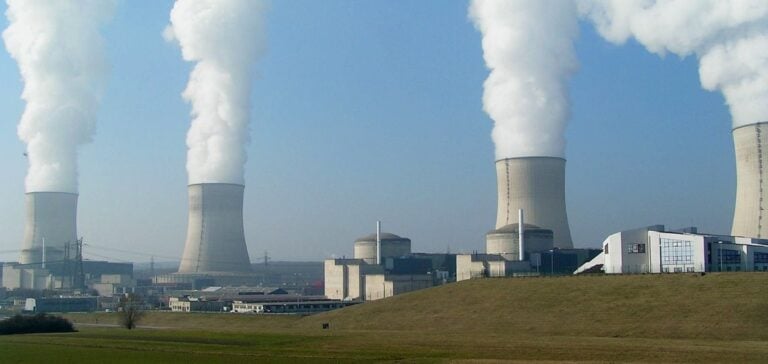Fifteen pro-nuclear countries meet in Paris to give concrete form to the revival of the atom.
This international conference, organized under the aegis of the OECD and the Swedish government, aims to explore the levers needed to accelerate the revival of nuclear power, a crucial issue for achieving global climate objectives.
The ministers and industrialists attending come from a variety of countries, including the United States, Canada, Japan and South Korea, as well as several European Union member states and Africa.
The event, entitled “Roadmaps to New Nuclear 2024”, focuses on concrete ways of increasing nuclear power generation, which is essential in the fight against climate change.
Discussions will focus on a number of strategic areas.
The OECD’s Nuclear Energy Agency (NEA) stresses the need to triple global nuclear capacity by 2050 to meet carbon neutrality commitments.
This implies not only the use of existing reactors, but also the development of new generations of reactors and small modular reactors (SMRs).
The NEA sees this meeting as a significant milestone in the global dialogue on nuclear energy, particularly in the context of the revival of nuclear power plant construction, as illustrated by the example of Sweden.
The challenges of nuclear revival
Financial and logistical issues are at the heart of participants’ concerns.
The NEA highlights the need to unlock capital at competitive rates, and to ensure robust supply chains.
Skilled labor is also a key factor in the success of this recovery.
The joint declarations expected at the end of the conference should reflect these concerns, calling for increased support from development banks and international financial institutions.
A similar call was made the previous year, underlining the importance of adequate funding for the nuclear sector.
The conference comes at a strategic time, less than two months before COP29, when climate finance will be at the center of discussions.
Nuclear power, long criticized in the wake of the Fukushima accident, is once again taking center stage in the energy transition debate.
Indeed, this energy source, with its low CO2 emissions, is now seen as an ally in the fight against climate change, alongside renewable energies such as wind and solar power.
International momentum in favor of nuclear power
Recent calls by influential countries at COP28 to triple nuclear power capacity by 2050 testify to the international momentum in favor of this energy.
Fatih Birol, Executive Director of the International Energy Agency (IEA), asserts that “nuclear power is making a strong comeback worldwide”, underlining its crucial role in energy security and reducing greenhouse gas emissions.
However, this ambition raises considerable challenges, particularly in terms of radioactive waste management and safety.
Mycle Schneider, author of a critical report on the state of the nuclear industry, highlights the difficulties of maintaining current capacity.
He points out that “just to maintain current capacity, we would already need to commission 10 reactors a year”, which represents a doubling of the current rate, a goal deemed “industrially impossible”.
These challenges call for a concerted approach and concrete action, as the NEA points out, hoping that this conference will enable us to move from discussion to action.
Future prospects for nuclear power
The results of this conference could have significant implications for the future of nuclear power worldwide.
Discussions on financing, training qualified personnel and building resilient supply chains are essential to ensure the viability of this energy source.
As the world moves towards an energy transition, nuclear could play a key role in achieving decarbonization goals.
The issues raised at this meeting highlight the need for greater international collaboration to overcome the obstacles to a nuclear revival.
Participating countries must work together to develop innovative and sustainable solutions, while taking into account environmental and societal concerns.
The revival of nuclear power is not simply a matter of increasing production capacity, but also involves in-depth reflection on how to meet contemporary energy challenges.





















